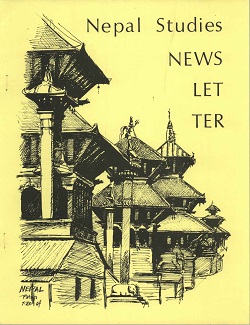Waking the Watchdog: Needs, Opportunities, and Challenges of Environmental Advocacy in Modern Bhutan
Author Biography
Hilary Oliva Faxon (Masters of Environmental Management, Yale School of Forestry and Environmental Studies, 2013) is a development consultant, writer, and aspiring academic. She has conducted research, worked with local conservation NGOs, and advised international donors on climate change-related grants in Bhutan. Faxon has presented her research on environmental governance at the Columbia University and the Association of Nepal and Himalayan Studies Conference.
Abstract
In a half-century, the Himalayan Kingdom of Bhutan has emerged from isolation to achieve international recognition as a model of alternative development.The small country’s Gross National Happiness philosophy emphasizes sustainable development, cultural preservation, environmental conservation, and good governance over the long-favored global metric of success: Gross Domestic Product. Bhutan’s historic environmental record has been strong, but modernization and the 2008 transition to democracy are changing the ecological and socio-political landscape, requiring the adaptation of conservation strategy. This paper draws on historic and policy analysis, ethnographic observation, and qualitative interviews with 20 of Bhutan’s key stakeholders to identify needs, opportunities, and challenges to public environmental advocacy in Bhutan. While Bhutan is often characterized as a static, serene Buddhist kingdom, its recent history has been dynamic, marked by major political change, economic growth, and active cultivation of a specific and uniform national identity. Accelerating ecological degradation due to development, vulnerability to global threats such as climate change, and transformation of the governance system create a need to advocate for creative and effective solutions. The rapid rate of change within Bhutanese society allows unprecedented opportunities for powerful civil society action. Interviews with major environmental figures from government, international organizations, and domestic groups show a common call for new, dynamic actors who can serve as a “watchdog” for the environment. Their tasks include producing scientific research and translating it into policy, mediating effectively between government and citizens in the fledgling democracy, and overcoming traditional cultural deference to publically challenge actions that threaten the environment. Thoughtful, responsible, and public environmental advocacy is both necessary and possible, and holds potential to enhance the environmental and democratic integrity of modern Bhutan.
Acknowledgements
My deepest gratitude goes to: my colleagues at the Royal Society for Protection of Nature for their insight and generosity throughout my stay in Bhutan; my interview subjects for their time and perspectives; my advisor Dr. Amity Doolittle for her invaluable guidance; and the members of the Yale Himalaya Initiative for providing funding and a community of scholarship.
Creative Commons License

This work is licensed under a Creative Commons Attribution 4.0 License.
Recommended Citation
Faxon, Hilary Oliva. 2014. Waking the Watchdog: Needs, Opportunities, and Challenges of Environmental Advocacy in Modern Bhutan. HIMALAYA 33(1).
Available at:
https://digitalcommons.macalester.edu/himalaya/vol33/iss1/10


